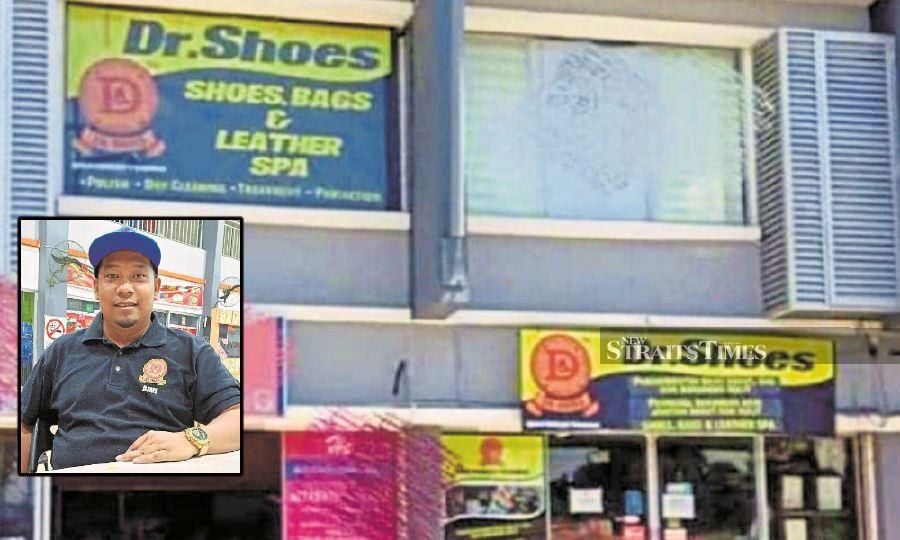"I bought a pair of new sandals for RM80. After two months of use, the strap gave way. I wanted to throw it away, but a friend mentioned this shop in town that may be able to fix it.
"I'm glad I went there. They did a good job. I'm just disappointed that the shoe manufacturer came out with such a lousy product."
These were the words of a neighbour. He told me about this place, Dr Shoes, which fixes ailing footwear and bags. That's how I got to meet Azmi Hadnan, who runs the show.
He opened the shop five years ago, and tells me business is good.
"Except during the Movement Control Order when the shop was closed and we had to operate from home, takings are improving every year."
But the 35-year-old entrepreneur thinks there's a long way to go to change people's attitude to repairs.
"A damaged product can be restored to newness.
"But for more people to accept this, they must first abhor wastage and adopt prudence as a way of life.
"They have to think hard about the things they are throwing, which could end up in landfills or are burnt, producing noxious fumes."
Azmi believes the government and local authorities can drive the 'repair sector' forward.
"They should hold courses on repairing shoes, bags and sandals, like what was once done by the Kajang Town Council, Selangor Economic Planning Unit and other groups.
"They can channel funds to small businesses like ours so we can expand, get suitable machinery to improve efficiency and provide more job opportunities. You know, Jimmy Choo learnt a lot from his father, who was a cobbler."
But that is only half the story. Getting skilled labour is a big challenge, he says.
That's why Azmi wants educational and vocational institutions to have more courses on repairing stuff.
"Then we can have more entrepreneurs and workers in this field."
Right now, society tends to think this business does not offer a good future. That this work is done only by migrant workers and former drug addicts on pavements.
"We have got to change this way of thinking if we want to boost the circular economy," he says.
Well, Azmi's certainly succeeded in making my neighbour think a little. That's a start.
i. Click here to read why many people think buying second-hand goods does not make sense
ii. Click here to read about the billion-ringgit potential of preloved clothes
iii. Click here to read about a 25-year-old entrepreneur who believes in secondhand furniture






